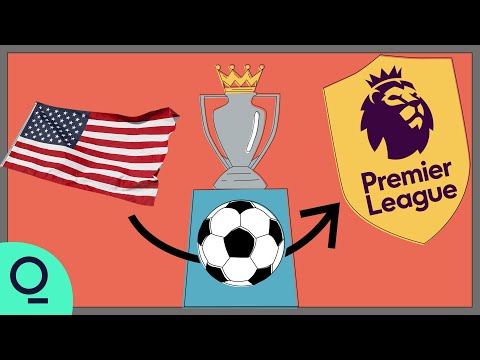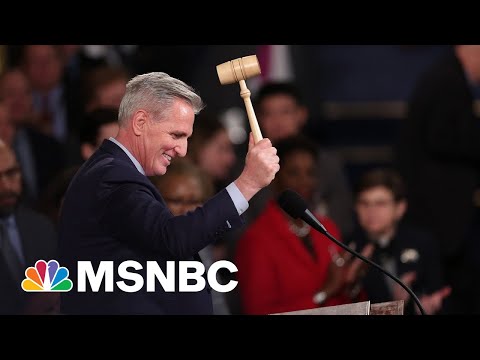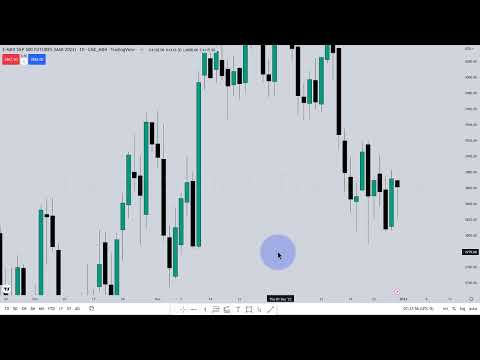The American Invasion of English Soccer Has Begun

The English Premier League is widely regarded as being home to the very best soccer in the world. It's a goal! Stanislas makes it three-three! It's watched by billions across the globe, making it the richest too. And while soccer, as we Americans call it isn't one of the top sports here in the U.S. it's never seen so many American investors in the U.K..
Wait! Even American superheroes are getting in on the action. Cue the music. Could Deadpool and Mac from 'It's Always Sunny' really save the day? US sports teams bring in a huge amount of money for their owners.
But if you wanna buy into the NFL from the Dallas Cowboys to the lowly Cleveland Browns, sorry Cleveland, you probably need to be a billionaire several times over. But, for those who love what the rest of the world calls football, buying into the English Premier League is way cheaper and could give you a much better return. Aguero! A billion plus people interact with the EPL. When you look at any American sport there's nothing anywhere close to it.
It just smelled of opportunity to me. While the huge investment in the EPL is intrinsically linked to the high quality of the competition and its star names, big money talks. And it doesn't care much for history or tradition. As radical plans to transform the game have been revealed U.S. investors are increasingly viewed with suspicion.
But will these changes be for the good of the game, or just the wealthy owners? Takes the snap, drops back, pumps once, looks right throws, endzone! Jets have the lead, it's 54, 35. Dover Athletic nil, Northwich Victoria nil. While our sporting sensibilities might be drastically different, when it comes to sheer commercial enterprise, the English Premier League is right up there. The Premier League's broadcast revenue is more than four billion dollars a season.
It's way richer than the other European leagues, even the ones with global superstars, like Messi, Ronaldo and Neymar. And more of us in the States are tuning in too, at the expense of our own pro soccer league. More than twice as many people watch EPL games than the MLS.
So how did English football become such a hot deal for American investors? I need an Englishman to help me figure this out. All right, so Alex, educate me here. As an American I'm intrigued, but also a little bit confused, candidly, by English football. So, what are the main differences, especially from the business perspective? Fundamentally, in the U.S. you have a league system whereby there's a defined number of teams in the league. Revenues tend to be doled out a lot more evenly between those teams.
Obviously if you finish a little bit higher at the table, you get a little bit more. In Europe, particularly in the U.K. you have a league system of four professional divisions and than a number more amateur divisions. And theoretically, if you or I set up an amateur team tomorrow, we could, inside a decade, be playing in the Premier League.
Obviously in practice it's a lot more difficult but by being promoted up the tiers, we could be a Premier League team. At 11:30 precisely the game gets underway with Chelsea attacking. It's left winger Tommy Knox working the ball along, across to Harris, then to right winger Murray. Straight into the safe hands of England and Blackpool goalkeeper, Tony Waiters. A lot of the history of these teams is so baked into the community, maybe in a way that it isn't here in the United States.
Yeah, when you look at the names of teams, actually, you could see some of that. Think about a team like Arsenal. It was actually the team associated with the Woolwich Arsenal, a military base, south of the river in London. With Aston Villa, that's my team, it was a cricket team that met up and said, We want to stay fit during the winter. They met outside Aston Villa, a villa in the Birmingham suburb of Aston, named their team after it.
This is a massive business. I mean the reason that this is attracting so much investment ultimately is because these team values have just skyrocketed, certainly, in the EPL. Yes and a lot of that has to do with the success of cultivating an international audience. The way that the Premier League in particular has really forged a lead was in a sense by following what happened in the U.S.. In the early '90s they started doing collective bargaining for their broadcasting rights.
It used to be the case that if you're Manchester United or Arsenal, or whichever club it might be, you would individually negotiate with the broadcaster. They said, actually, we're better off as a unit, if we all negotiate together. And that's when the Premier League was formed. You tie that up with the arrival of Rupert Murdoch, trying to bring a satellite TV station to the U.K.. He recognized there was a huge amount of passion for football. If he could lock up the rights for that, he would secure an audience for his pay TV station.
The F.A. Premier League, live, only on Sky. Now since the Premier League was formed, we've seen a huge ballooning in the value of broadcast rights.
It's jumped 60-fold since 1992. So previously the value of the rights was about £600,000 per game. In the most recent round it was about 9 million per game.
That is astonishing. So, with those sorts of figures, it stands to reason that big investors in the United States and elsewhere would come calling and see a lot of opportunity. They've seen opportunities for a bargain. You can buy a middling football club for several hundred million. You can buy a football club in the second tier, for considerably less than that.
You compare that to the NFL, where, you know, franchises change hands for perhaps two billion dollars. Huge difference there. We're not for fucking sale! We're not for fucking sale! The most famous U.S. owners were the Glazers
who owned the Tampa Bay Bucs. They came and bought Manchester United. And they approached it with the kind of attitude of a private equity company. You can pile a huge amount of debt onto it, extract some of that as cash to line your own pockets and because they are fundamentally media assets, it's quite resilient.
As long as they invest enough in the playing squad, keep them in the Champions League, you're going to be able to generate enough free cashflow to service your debt obligations. This is a couple of thousand quid's worth of season tickets going up in smoke The Glazers aren't exactly loved in Manchester and to many British fans, they reflect the confusing emotions inspired by U.S. ownership. Incredible financial growth might also coincide with declining sporting performance. If you're looking for a model of American ownership to follow, it might just be Man United's biggest rivals, Liverpool. The current champions have enjoyed a resurgence in recent years.
And that's happened since they were taken over by Fenway Sports Group. Those are the guys behind the Boston Red Sox. An ownership group that knew what success was about, that knew how to build patiently, everything that a football club is about. This is Peter Moore, he was the CEO of Liverpool when they won the Champions League in 2019 and then the Premier League in 2020. So Peter, what did Fenway bring to Liverpool? Maybe something specific that they brought from running a very successful and very fabled American baseball team.
First thing that struck me when I spoke with Mike Gordon is, he said, "We're not the owners of this football club." He said, "We have the economic rights to do business on behalf of this football club. The owners are the fans." For me certainly there was no true interference in how we managed the football club.
We improved the structure of the football club, they applied science and data. All of the things that they'd learned in the days of Theo Epstein and young general managers. And brought in actual scientists and data analysts.
So the thousands of players were analyzed that were in the marketplace. And our own players were analyzed to get the best out of them. Quick snap, protected in the pocket the ball comes out! And the 49ers are on it! One of the EPL's newest American execs comes with a deep knowledge of American football. And a business acumen shaped by decades in and around Silicon Valley.
But he's the first to admit he's not a soccer fan from the cradle. I started looking into soccer clubs, football clubs in Europe, gosh, maybe 10 years ago. At that time, you know, with all due respect, I still didn't know if a soccer ball was puffed or stuffed.
Paraag Marathe is the president of 49ers Enterprises, which bought a stake in Leeds United in 2018. Part of an ambitious effort by one of America's story franchises to expand its portfolio. At the time Leeds was itself a fabled franchise.
But one that had fallen on hard times. Leeds were playing in the second division of English football. Last season they won promotion to the top division, the EPL. Premier League here we come! Come on! So tell me about promotion from a business perspective because you're doing a calculation here about a huge potential upside.
You're talking about a 20X increase in per club media rights from going from the Championship to the Premier League. You still play in the same stadium with the same size. And you have the same number of fans.
I can count the same number of suites and premium but your media rights goes up 20-fold. Promotion to the Premier League could be worth anywhere from 130 to 200 million pounds. Just take this example. In 2016 another second division team, Wolverhampton Wanderers, were bought for around 63 million dollars. They gained promotion shortly after that and are now estimated to be worth around 10 times that figure. Taking a punt, as they say in England, on a team rising up the divisions can really pay off.
But what goes up, can also come down. A concept we Americans aren't exactly familiar with. Two teams here who are desperate for three points to avoid relegation. What are you looking forward to? Well, I'm looking forward to the definition of relegation. Three teams drop out of the Premier League every season. Yes, relegation is real and it's kind of, you have to manage the delicate balance because there is a correlation between acquiring more players in the transfer market and buying players to be able to, to be more competitive.
And winning and matriculating up the table, right? But at the same time that comes with a risk because if you spend a lot in the transfer market and you get relegated, now all of the sudden, you're potentially more in a world of hurt. So yeah, you do have to factor that in and you do have to model that. One year ago the club's valuation was much different than it is today. And trying to figure out, okay well, which one is the real, sustainable valuation. Like, that's a hard exercise to do. I hope for Paraag and Leeds fans they don't drop anytime soon.
The history of British football is littered with stories of big time clubs going down. And not making it back. But for many fans a relegation battle can be just as exciting as the chase for a championship. It's a very performance-based system and I'm sure there's probably some fans that say, "Wow, I wish we had something like that in America."
And I'm not suggesting any owner wants that in America, don't get me wrong. Alan Pace and his U.S. investment firm ALK Capital have also just joined the Premier League. They've taken over Burnley, a team just 50 kilometers away from Leeds in the north of England. We talk about performance-based stuff all the time in business and as entrepreneurs and as other things.
Performance-based means you get rewarded for performance. It seems kind of odd that you wouldn't have it within your own sports process of, "Look, if you don't perform, you don't get to stay with everybody else." But it's also super interesting and I think very cool that people can get promoted and people can get relegated based off of performance. So Alan, as an investor, what appeals to you about the EPL? You have a global audience. That is very, very different than any American sport. I mean, you're talking a billion plus people interact with the EPL.
And when you look at any American sport, there's nothing anywhere close to it. Now, I'm not suggesting that you've monetized that billion plus. But if you just even for half a second think about how could I monetize that situation from a business perspective, you've got an audience already. So, like, how do you bring that capability and that knowledge from American sports into an audience that's just that much bigger. And, can you? That is a challenging question for a lot of people is can you actually do something with that? And honestly, our bet is yes you can. What I have noticed about football in Europe versus, kind of, American football in college, it's almost very similar.
That sense of community, that sense of passion. Everybody coming together and really kind of jelling for something, a big event. And so, even though we're 30 - 40 minutes outside of Manchester, the whole community is a Burnley fan. This is a relatively small town. Everybody knows everyone. And certainly they know when an American shows up and buys the team.
What does that feel like for you? Well, you know, it's funny because there's a lockdown and so we haven't really got to meet a lot of people. So no one's tried to burn down my house yet. And there's been no pitchforks or anything. There's no reason to believe ALK will manage Burnley badly but it's the kind of leveraged acquisition that can make fans nervous and has previously resulted in major fan protest. If I were a Burnley fan, I would be just a little bit anxious, because you know, there I was supporting a club that was earning 100 million a year from being in the Premier League, from broadcast income, had 40 million pounds in the bank, to a club that now has quite high debt.
They're still in relegation trouble this season. They could be in relegation trouble most seasons. And if they are relegated, then obviously their broadcasting income diminishes by 20 times. Burnley could be relegated and then never come up again into the Premier League. There's a definite risk of that. If you're buying a team in the Premier League the value of that team is very closely tied to its on-field performance.
And that is just not the case in the U.S.. You're de-risked to a great degree as a franchise owner in the States. Because you know if you have a poor year, you'll get the top pick of the draft.
That gives you better chances of improving in subsequent years. You have one poor year in the Premier League and you're down a division and losing a huge amount of revenue. Teams adapted differently to relegation. But some just go straight down. You know, they just can't cope. It's like the whole fiber of the club seems to collapse.
So Alan, I've looked at the message boards and it's fair to say there's some skepticism out there. Especially about the structure of the deal. So from a lay person's perspective, walk me through it. The best analogy that I would give as to what we've done is, think about you've seen a house, OK, that you really like.
But you think it's probably a little bit of a fixer-upper. And you take a mortgage because it actually makes sense with the process of what you're doing. And then, you could use some of your capital more efficiently in actually investing into the club in different ways. Or fixing up the house in different ways.
Yes, there's leverage. There's no doubt about it. Because any of us that have ever had a home or that have ever charged anything on credit, on a credit card, there's leverage in our lives. Now if Burnley's a fixer-upper, this next club is one of the most unlikely recipients of an American makeover. And we're not talking about just any U.S. businessmen here. We're talking about A-listers, Ryan Reynolds and Rob McElhenney.
Wrexham are what's known as minnows, small fish in a big pond. In normal times they have an average attendance of just 5000 fans. Which is actually pretty good for a team in the fifth division. Last season they ranked 111th in the football pyramid.
So, Wrexham is a long way from that sweet broadcast revenue. If you start in the bottom you've got the amazing upside of the possibilities of promotion. Ultimately they, I think, are looking for a story to be able to tell, Ryan Reynolds and Rob McElhenney. It looks like they are seeking a vehicle for a narrative. And ideally that narrative is: Get the team promoted up the divisions.
And that would make for a pretty compelling show on Netflix or Amazon Prime or wherever it might land. That team has not got a huge amount of revenue. Only sort of two or three million pounds a year. If you're looking at a Netflix show which you're selling for several hundred thousand pounds an hour and you have an eight hour mini series, all of the sudden you've doubled that team's revenue in one fell swoop. It's a sort of active management.
It is very much bringing special sauce and applying it to the asset. This isn't a punt either. In recent years streaming services have been flooded with sports documentaries.
For most teams it's a small part of the business. For Wrexham, according to a letter sent to potential sponsors, it's a key part of the commercial pitch, along with the opportunity to get your name on the shirt, the stadium and working personally with two interested Hollywood stars. Sports documentaries cost less than top level games and have a longer shelf life. The biggest problem is whether it makes compelling television.
Good TV requires troughs as well as peaks. Meaning losses as well as wins. Next thing I know Rob McElhenney gives me a buzz and says, "I'd love to pop up to Santa Barbara." He, like all of us, started to consume massive amounts of Netflix during lockdown. And stumbled across a documentary series called "Sunderland 'Til I Die." And he said, "I watched this and I was enthralled."
And less with the football action but the people and the agony and the angst. And he said, "I know these people. This is Philadelphia. This is every city that is going on tough times, that is been let down by the one thing that can lift the spirits, which is their team." As a result he said, "I called Ryan and said, 'We need to buy a football club.'"
Just like I had to turn to the experts to really understand football to begin with, so too did Ryan and Rob. See, stars, they're just like us. And they had the perfect guy. Someone who'd not only run a championship club but who'd actually lived in Wrexham. Wrexham! I grew up there, I played football there. I played for Wrexham School Boys, played at the Racecourse Ground where Wrexham play.
So when I wasn't playing I watched Wrexham. And in those days they were a very good team, playing in the second division of English football. 'Giant Killers' as it's known. So the big clubs would come in the FA Cup, the knock out competition and most famously beat Arsenal. Fast forward to, you know, as recently as a year ago and the club had fallen into, quite frankly, disarray, it'd gone into administration, bankruptcy. Nolan.
Well, he's tripped there. Now the situation for Wrexham fans was kind of win-win. They can't fall much further and in their eyes American ownership probably means climbing the ladder and maybe even hitting the big time. Oh what a goal! One of the goals of the season.
But when foreign owners pick up a team, in part to use it as a vehicle for a video series, it gives you a sense of how much the game has changed. Football is a very simple virtuous cycle. You make as much money as you possibly can, you invest that on the pitch. Those players bring you victories.
When you win a lot sponsors like that and they will give you more money, which you then turn around and spend on the pitch and you get even better players, who win you league championships and Champions League trophies. And sponsors wanna be a part of that as well. And they give you even more money. So it's a classic virtuous cycle. Ultimately what happens in the best leagues in the world won't have that much effect on the grass roots.
Kids will still go to the park and play and they'll continue to play for years to come. But the question remains, will big business spoil the beautiful game? In recent months a lot of chatter has emerged about how the biggest clubs in the world are trying to consolidate power and get a bigger slice of the pie for themselves. Which raises another question, can English football survive this Americanization? I think if you went to ask almost any football fan, do you like relegation and promotion? They will say yes, because it is actually what brings a thrill to the game. When people talk about football evoking such passion, partly because there's more at state for the club. You know, if you lose a game, you could be out of the top league for a number of years and in the doldrums.
There's a move to try to get the top clubs in a league which is always the same members year in, year out. It is a way of ensuring that those clubs retain their value, they have predictable revenue that will be recurring for the years to come. And because it's at a European level, whether we're playing against all the other top clubs, they will attract a bigger, international fan base. Now that might be to the detriment of a normal fan, every day fan, in their home city. For a simple reason, they may not be able to travel to Munich or Madrid or Milan every other week, it's quite expensive.
And so it's something that investors like but fans on the whole, really don't. The biggest fear of course is that you lose fairytales like Leicester City. This is a team that rose from being in the third tier of English football to winning the whole thing in a span of just seven years. At 5000-1 to win the league that season, bookmakers had never paid out so much. But there are other types of fairytales, maybe still to be written.
Who knows? Maybe we'll see Wrexham in the Premier League before too long. Thanks so much for watching. We'd love to hear what you think about this and other episodes about the business of sports.
I'll be in the comment section. Can't wait to hear what you think.
2021-04-17 18:57


